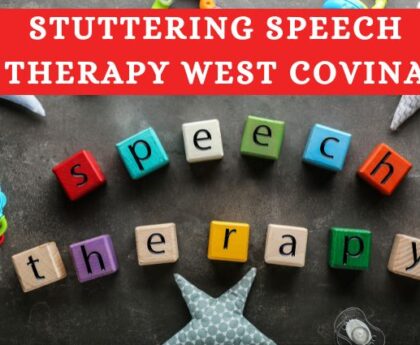Rehabilitation is a crucial aspect of the recovery process for individuals facing a wide range of physical, mental, and emotional challenges. Whether someone is recuperating from a serious injury, managing a chronic illness, or striving to overcome addiction, rehabilitation plays a pivotal role in helping them regain their independence, functionality, and overall quality of life. In this blog, we will delve into the multifaceted importance of rehabilitation in the recovery process, emphasizing the comprehensive nature of rehabilitation programs and their transformative impact on individuals’ lives.
Healthcare is a critical aspect of our lives, encompassing a wide range of services aimed at promoting and maintaining our well-being. It is a complex field that involves various components, including medical practitioners, hospitals, insurance, pharmaceuticals, and public health initiatives.
Defining Rehabilitation
Before we delve deeper into the subject, let’s define what rehabilitation encompasses. Rehabilitation is a holistic and patient-centered approach to help individuals recover from various conditions or injuries, restoring their physical, psychological, and social well-being. It focuses on enhancing a person’s functional ability, optimizing their quality of life, and fostering independence.
Types of Rehabilitation
Physical Rehabilitation:
- Physical rehabilitation is often associated with physical therapy, but it extends beyond that. It aids individuals recovering from injuries, surgeries, or medical conditions that affect their mobility and physical function. Physical rehabilitation programs include exercises, manual therapy, and adaptive equipment to enhance muscle strength, flexibility, and overall physical fitness.
Mental Health Rehabilitation:
- Mental health rehabilitation is designed to support individuals recovering from mental health disorders. It involves counseling, psychotherapy, medication management, and coping strategies to help individuals regain control of their lives, manage symptoms, and improve their emotional well-being.
Substance Abuse Rehabilitation:
- Rehabilitation is essential for individuals struggling with addiction. Substance abuse rehabilitation programs offer a structured environment that provides education, therapy, and support to help people overcome their dependencies and build a substance-free life.
The Importance of Rehabilitation in Recovery
Restoring Functionality:
- Rehabilitation is instrumental in restoring lost functionality. Whether a person has experienced a stroke, an amputation, or a serious injury, rehabilitation programs work on regaining physical and cognitive abilities. This enables them to regain independence and perform activities of daily living with confidence.
Enhancing Quality of Life:
- Rehabilitation is not just about physical recovery; it also aims to improve a person’s overall quality of life. For individuals with chronic conditions like arthritis, diabetes, or heart disease, rehabilitation programs help manage their conditions effectively, reducing pain and discomfort, and allowing them to lead more fulfilling lives.
Psychological Healing:
- The psychological component of recovery is often underestimated. Mental health rehabilitation is crucial for individuals recovering from conditions such as depression, anxiety, or post-traumatic stress disorder. These programs provide a safe space for individuals to process their emotions, learn coping strategies, and work towards psychological healing.
Preventing Relapse:
- In the context of addiction recovery, rehabilitation plays a pivotal role in preventing relapse. Substance abuse rehabilitation equips individuals with the tools they need to resist triggers and cravings, enabling them to maintain their sobriety and build a healthy, addiction-free life.
Social Reintegration:
- Rehabilitation programs also focus on social reintegration. For those recovering from injuries or illnesses, it’s essential to regain their place in society. Rehabilitation helps individuals build social skills, restore relationships, and reintegrate into their communities and workplaces.
Holistic Approach:
- The holistic nature of rehabilitation addresses the physical, mental, and social aspects of recovery. This comprehensive approach ensures that individuals receive well-rounded care that considers their unique needs and challenges, leading to more effective and sustainable results.
Improved Self-Esteem and Confidence:
- Rehabilitation often results in improved self-esteem and confidence. When individuals see themselves making progress and regaining control of their lives, it boosts their self-worth and motivates them to continue their journey to recovery.
Case Study: The Remarkable Impact of Rehabilitation
To illustrate the transformative power of rehabilitation, consider the case of Sarah, a 38-year-old woman who suffered a severe car accident, resulting in multiple fractures and a traumatic brain injury. Her journey to recovery involved an extensive rehabilitation program that lasted for several months.
Sarah’s rehabilitation plan consisted of physical therapy to regain her mobility, occupational therapy to relearn daily activities, and cognitive therapy to address her brain injury. Mental health support was also provided to help her cope with the emotional trauma of the accident.
Through consistent effort and the dedicated support of her rehabilitation team, Sarah gradually regained her physical abilities, cognitive function, and emotional well-being. She was not only able to walk again but also return to work and maintain a fulfilling social life. Sarah’s success story underscores the indispensable role of rehabilitation in her remarkable recovery journey.https://tefwins.com/
Conclusion
Rehabilitation is undeniably a cornerstone in the recovery process, providing individuals with the tools they need to rebuild their lives and regain their independence. Whether it’s physical, mental, or substance abuse rehabilitation, these programs offer holistic solutions that encompass physical health, psychological well-being, and social reintegration. The importance of rehabilitation in recovery extends far beyond the confines of a single medical discipline, making it a crucial part of the healing journey for countless individuals seeking to reclaim their lives. By recognizing and promoting the significance of rehabilitation, we can better support those on the path to recovery and help them achieve lasting, positive change in their lives.



